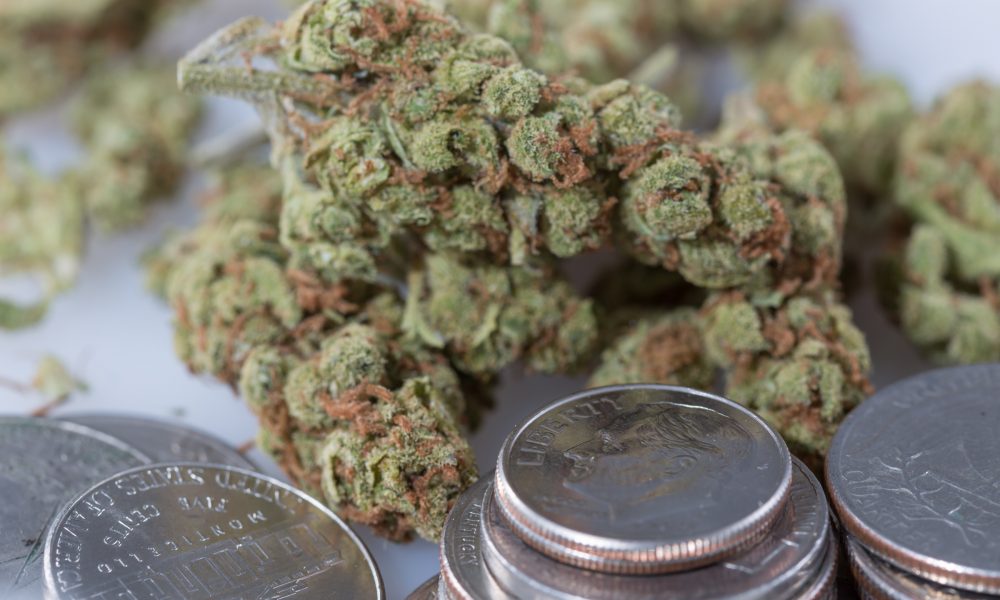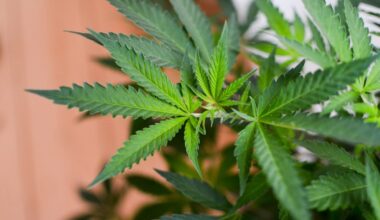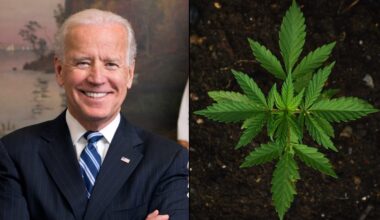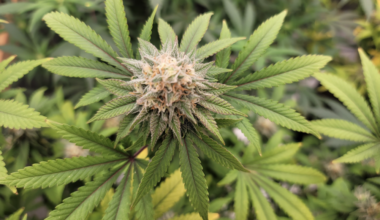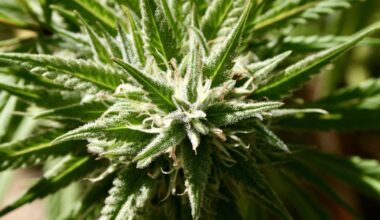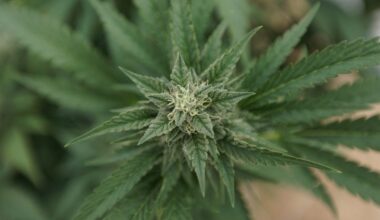Sen. Bernie Sanders (I-VT) says President Joe Biden could and should use executive authority to end federal marijuana prohibition on his own—but the two of them have “differences” when it comes to drug policy.
During a recent podcast interview on Krystal Kyle & Friends, the senator at first cautioned that the president is limited in what he can do unilaterally. But when host Krystal Ball rattled off a list of things Biden could theoretically change with executive action, including changing cannabis’s federal classification, Sanders replied that “yes” he could do that.
As a Democratic presidential candidate in 2020, Sanders himself pledged that he would legalize marijuana across the country on his first day in office if elected. That idea has been questioned by some expects, however, as there are unique challenges associated with a presidential move to unilaterally remove cannabis from the Controlled Substances Act (CSA).
To reschedule marijuana through the executive branch, the secretary of the Department of Health and Human Services (HHS) or an outside party would have to file a petition, which would then be reviewed by the attorney general, who has usually delegated that responsibility to the Drug Enforcement Administration (DEA).
The attorney general can also initiate the process on their own, requesting a scientific review directly to HHS. Under HHS, the Food and Drug Administration (FDA) would then assess the scientific, medical and public health implications before submitting that review to the Justice Department, which would then effectuate the appropriate reclassification under federal law.
But even if Biden did have the legal authority to federally legalize marijuana himself, it stands the reason that he would not go that far. Sanders noted in the new podcast interview that the president does not share his perspective on the issue.
“Joe Biden and I on marijuana—I think the war on drugs has been just a disaster for this country, for the African-American community,” Sanders later said. “I think it should end. I think marijuana should be legalized. We do [could] that fairly simply. But yeah, so we have differences.”
White House Press Secretary Jen Psaki said as recently as last month that “nothing has changed” with respect to the president’s opposition to adult-use legalization. However, the trio of senators behind a bill to federally deschedule cannabis are actively discussing the policy change with the White House in hopes of changing Biden’s mind.
In any case, the president did campaign on a promise to enact modest reforms such as decriminalizing cannabis possession, expunging prior records and respecting the rights of states to set their own laws.
Since taking office, however, his administration has not made progress on any of those promises and has instead fired its own White House staffers over marijuana and sought to extend a budget provision that has blocked Washington, D.C. from legalizing cannabis sales.
After their primary battle and prior to the general election, Biden and Sanders established a criminal justice task force that was charged with making various policy recommendations for the incoming president. But marijuana legalization did not make the cut, despite the fact that many members of the group personally supported the reform.
Stacey Walker, a Linn County, Iowa supervisor who was recruited for the task force, said earlier this year that Biden “was really concerned about how [supporting legalization] could have impacted the outcome of the election” despite the fact that a supermajority of voters support the reform.
In any case, advocates have sharply criticized the administration for failing to take steps to enact reforms Biden did promise, and it seems increasingly likely that it will be incumbent upon Congress to fulfill those goals. And whether there’s enough support to pass comprehensive legalization in the Senate, where Democrats hold just a slim majority, is another question on its own.
Top Federal Drug Official Says Criminalization Creates Stigma And Harms Health Of Consumers
Medical Disclaimer:
The information provided in these blog posts is intended for general informational and educational purposes only. It is not a substitute for professional medical advice, diagnosis, or treatment. Always seek the advice of your physician or other qualified healthcare provider with any questions you may have regarding a medical condition. The use of any information provided in these blog posts is solely at your own risk. The authors and the website do not recommend or endorse any specific products, treatments, or procedures mentioned. Reliance on any information in these blog posts is solely at your own discretion.
